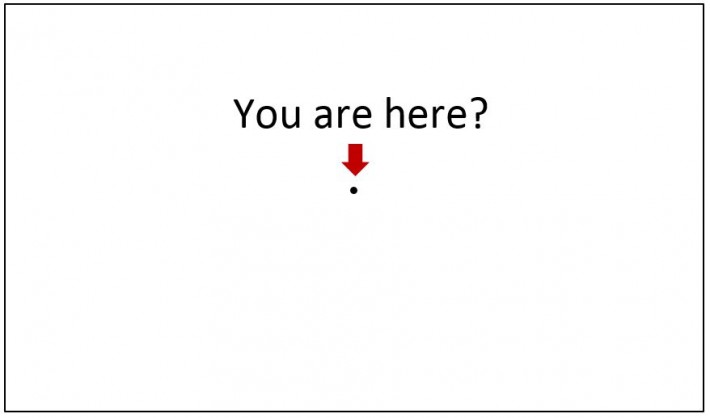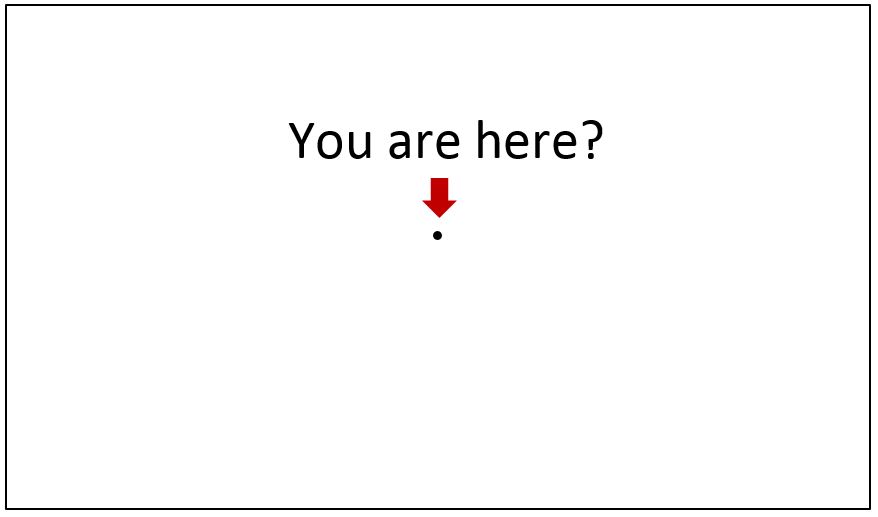Why it is important to talk about our existence

Existentialism does not come up much in business conversation.
That is not to say the concept hasn’t been applied beyond philosophical circles. Papers published in the 60s and 70s had titles such as Existentialism for the businessman, The management theory jungle and the existential Manager, The existential executive, and An existential approach to accounting. These papers position that “all businessmen are philosophers” (and businesswomen… it was the 60s) and bold statements like:
“Existentialism is the de facto, if unrecognized, philosophy around which the successful manager organizes his life and work.”
Talking about our existence can seem unnecessary for those who may be particularly good at existing and threatening to those who feel they can’t quite get the hang of it. It is a conversation we don’t often have, in part because talking about our existence raises the thought that at some point…
You will not exist
“I’m not afraid of death; I just don’t want to be there when it happens.” – Woody Allen
Talking about existence means we need to acknowledge not existing. The more we have invested in existing, the less appealing it may be to consider the alternative.
Our inevitable non-existence is an unspoken motivator through much of our lives. The people we celebrate are those who get the most out of their existence or leave a legacy proving they existed. Our accomplishments are measured by the length of time someone holds up a measuring stick against our life after we are gone.
One author who studied the impact of the threat of non-existing on executives called the concept a “stealth motivator”:
“The way each of us denies death not only affects life in its broadest sense but also influences the way we behave in organizations. Death anxiety underlies much executive behaviour and action.”
This motivator resides in an appointment that is present in everyone’s calendar but not often spoken about. It is an appointment with reminders set at often inopportune and random intervals. The reminder comes in the form of a newly discovered ache, the rapid aging of an acquaintance’s children, the slow advancement of time in the mirror’s reflection, or the assessment of progress against whatever preconception a person has of a career.
Two possible reactions can be considered when these reminders pop up. In one, the reminder is ignored or “snoozed”. The reminder is offensive, an unpleasant prompt that the party is going to end. The reminder is buried amongst the list of things that must be done before we get to the list of other things to do. Seeing the appointment produces a distaste to the degree that a person’s identity is attached to the destination or they are dissatisfied with their progress.
An alternative response is one of childlike excitement, like a rush to go on as many rides in the theme park before the gates close. Rather than be ignored, the reminder is posted somewhere prominent for easy access. Glancing at the reminder produces a zest to live in the moment and to get the most out of every breath, to take risks and overcome fear, to give everything because you can’t take it with you.
These two scenarios indicate that perhaps…
You have a choice
“Everything can be taken from a man but one thing: the last of human freedoms – to choose one’s attitude in any given set of circumstances, to choose one’s own way.” – Viktor E. Frankl
Choice seems like a paradox against the inevitability of existence. We have choice in a context that is without choice. The certainty of the end defines our choices made in the moment.
You might say that the choices we make are a matter of life and death. Writers speak metaphorically of “dying before your time” even though the person remains alive. Conversely, some say making a life-changing decision will result in being “born again” even though you have been alive for years. In spite of (or perhaps because of) the inevitability of death, the most important choice is how one chooses to live.
There are a couple of reasons why there is an aversion to choice, to give in to the inevitably of the situation. One reason is a belief that you are defined by your choices from the past. Like a tree growing a thick layer of bark, previous choices limit the ability to choose in the future. The other reason is a belief that it is just the way you are. Like an object or a thing that has no choice but to accept the inevitability of its nature.
These reasons are understandable. Science has long known that habitual thought patterns etch paths in our brain. However, advances in the concept of neuroplasticity show that these pathways can be re-routed and that we can re-program ourselves through the choices we make.
Rather than becoming arrogant as masters of our destiny, the acceptance of choice requires humility. This is because even though we have the capacity for choice, it is very difficult to change our habitual patterns without outside help. As I posted previously about first and second order change, it may not be possible for you to change your own rules without outside influence.
Choice can be difficult. It is much easier to trust in fate and chance rather than grapple with consequences of past choices, indecision in the present, and the uncertainty of future outcomes. Simply having choice means…
You will suffer
“To live is to suffer, to survive is to find some meaning in the suffering.” – Friedrich Nietzsche
One of the more significant choices a person makes is the meaning they give to suffering. Suffering is as inevitable as existence. Much of the effort in society is focused on avoiding suffering, on pursuing happiness through the avoidance of suffering. This effort of pleasure, power and success by some unfortunately produces suffering in others.
Yet suffering is a factor in most any sort of growth. We suffer if we want to get physically fit, obtain a certification or degree, compete in sports or business, or navigate making and breaking of relationships. Our existence is defined not in the amount we suffer, but the meaning we give to that suffering.
Suffering without meaning can result in a form of “existential angst”, or an anxiety related to questions about the nature of existence. Finding meaning and purpose eases this angst and lets us know there is a reason for the pain.
We see this play out in several ways. In the commercial space, people who suffer for their employer find the suffering meaningless when they receive their redundancy notice or face a restructure. Emptiness is found in personal relationships when the meaning given is torn away when the relationship breaks down. Individuals may be challenged if the meaning they found in material success becomes meaningless once it is obtained.
It is not through suffering alone that we grow, but through what is learned through the suffering. To learn requires the now popularised concept of “leaning in” to the challenge. If there is to be suffering and it is through challenge that we grow, then what choice can be made about the approach to suffering?
Enjoy your existence!
The thought of our existence need not be confronting or avoided. On the contrary, the topic can be liberating and encourage some challenging and exciting questions:
- You only have so many days. How will you make the most of each one?
- You are who you are based on the choices you make today. What choice can you make today?
- Suffering is a part of life and often necessary for growth. The world can be a challenging place. Can you find a meaning and purpose that puts the suffering in perspective?
A philosophical understanding also benefits a leader who can help his or her team find meaning and purpose in the work they do. Organisations have their own existential position: acknowledging the concept of not existing, working through the degree they feel they have choice, and finding meaning in suffering. The leadership opportunity is to help people find meaning in what they do, embrace their choice on how they see challenges and opportunities, and understand the reason behind change.
Thank you for sharing your existence with me through this blog post.


Thanks for this article, I think it is brilliantly written.
I also think this is an idea that needs to be talked about more, because (even though it is a no brainer) many people still find it hard to accept death and the loss of their existence, or in reverse, accept that their existence now is a one time thing.
This is definitely getting me into ‘deep, philosopher mode’, thanks!